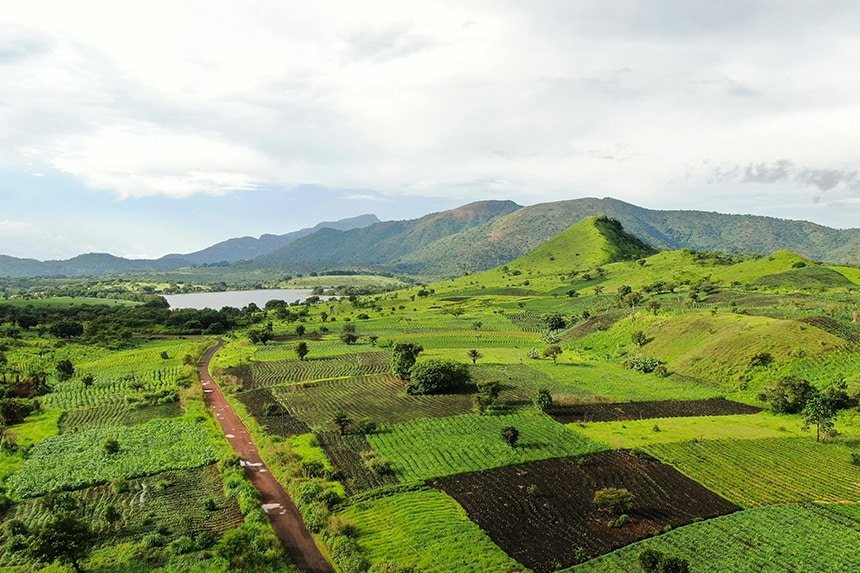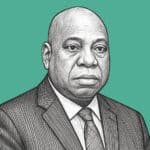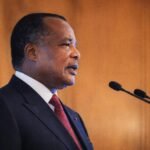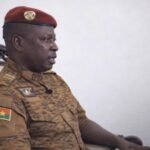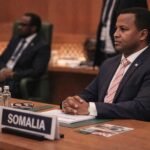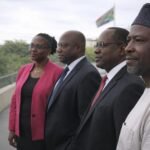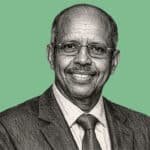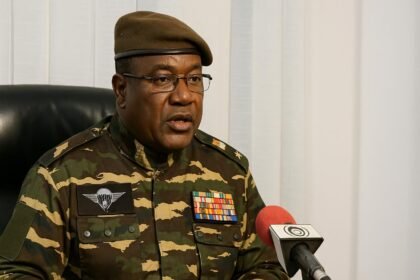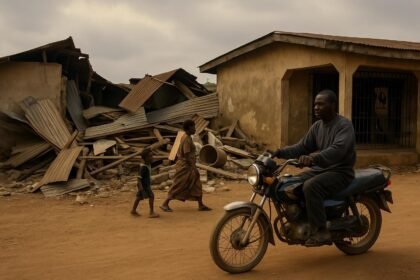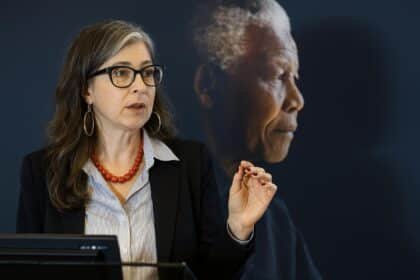Diplomacy amid Deferred Peace
Cameroon today occupies a paradoxical position. On the one hand, the state is labouring under the cumulative weight of a conflict in its North-West and South-West regions that, since 2016, has claimed thousands of lives and displaced close to a million individuals. On the other, Yaoundé has undertaken a vigorous campaign of external engagement that belies any suggestion of diplomatic fatigue. Reception halls in the capital testify to a frenetic schedule of high-level visits: mixed economic commissions with Türkiye, negotiations on double-taxation treaties with the Czech Republic, and visa-waiver accords with Tunisia and South Korea have punctuated the first week of May 2025 alone. The question that animates this essay is therefore whether and how such external activism can tamper the centrifugal forces tearing at the national fabric or whether, conversely, unresolved internal fissures will ultimately circumscribe the efficacy of Cameroon’s new diplomatic portfolio.
- Diplomacy amid Deferred Peace
- The Anglophone Conflict: Long War, Lingering Trauma
- Yaoundé and Malabo: A Perilous Neighbourly Coolness
- Türkiye’s Expanding Footprint: Pragmatism and Soft Power
- Visa-Waiver Diplomacy: Signalling Openness, Securing Markets
- Security Externalities: Terrorism, Piracy and Regional Overspill
- Governance and the Paradox of Diplomacy without Reform
- Prospects and Policy Recommendations
The Anglophone Conflict: Long War, Lingering Trauma
Nearly nine years have elapsed since security forces opened fire on lawyers and teachers protesting linguistic marginalisation in Buea and Bamenda. The confrontation has matured into a complex insurgency whose humanitarian ramifications place Cameroon among the world’s most acute, if under-reported, crises. Recent estimates indicate that 6,500 lives have been lost, with some 3.3 million people in need of humanitarian assistance and protection. Within the conflict zones, spoken-word poetry has emerged as an unlikely forum for collective catharsis, offering both a chronicle of abuses and a vehicle for civic resilience. Yet the significance of these cultural dynamics should not obscure the strategic stalemate. Separatist armed groups retain mobility in upland areas, and government forces, while better equipped, remain overstretched as they confront jihadist cells in the Far North. In this context, negotiations mooted intermittently by the Swiss-led facilitation team continue to falter, not least because Yaoundé insists on the indivisibility of the state while separatists demand a referendum on self-determination.
The protraction of hostilities has exacted a reputational cost. Reports from multilateral bodies warn of an ‘imminent risk’ of atrocity crimes, a designation that complicates Yaoundé’s quest for foreign direct investment and elevates the scrutiny applying to any security-sector cooperation agreements, including those recently concluded with Ankara. Moreover, humanitarian access remains impeded by rolling lockdowns imposed by both the state and separatists, inhibiting the delivery of life-saving relief and aggravating food insecurity that now affects an estimated 2.5 million people.
Centre mondial pour la protection
ReliefWeb
Yaoundé and Malabo: A Perilous Neighbourly Coolness
Simultaneously, Cameroon’s relations with Equatorial Guinea have sunk into a period of latent acrimony. On 22 April 2025, Malabo expelled several hundred Cameroonian nationals, citing irregular migration risks. The measure revived memories of the 2024 partial land-border closure and amplified public outrage in Cameroon, where critics interpret the expulsions as collective punishment and a violation of the Central African Economic and Monetary Community’s free-movement protocol. While heads of state have exchanged messages of conciliation, operational trust remains brittle. Residents along the 200-kilometre frontier report intensified patrols, and Yaoundé has publicly protested Equatorial Guinea’s ongoing construction of a border wall, a project whose symbolism threatens to eclipse its physical footprint.
The diplomatic channel has not been entirely dormant. A joint commission last assembled in Djibloho in August 2024 agreed in principle to invite mediatory assistance from the UN Secretary-General should delimitation talks on the maritime boundary stall again. Yet progress since then has been minimal. The underlying dynamic is one of asymmetrical confidence: Malabo’s smaller population but higher per-capita income reinforce a securitised worldview that privileges fortress-like borders, whereas Yaoundé, with porous frontiers on four sides, sees enforced immobility as an economic and human-security liability. The risk is that routine expulsions will normalise a form of coercive diplomacy, fuelling nationalist rhetoric on both sides and diverting attention from shared challenges such as piracy in the Gulf of Guinea and the trafficking routes that criss-cross the estuarine settlements of Campo and Kye-Ossi.
Türkiye’s Expanding Footprint: Pragmatism and Soft Power
If relations with Malabo display an undercurrent of mistrust, Yaoundé’s engagement with Ankara is suffused with rhetorical warmth. In an interview published on 22 January 2025, Türkiye’s ambassador, Volkan Öskiper, invoked a trajectory ‘from opening to partnership’, affirming that cultural affinity and the legacy of Cameroon’s famous 1990 World Cup run continue to animate bilateral relations. The practical expression of this entente is the Joint Economic Commission convening in Yaoundé between the 5th and 7th of May. Co-chaired by Türkiye’s Minister of Defence and Cameroon’s Minister of External Relations, the forum is anticipated to yield agreements on defence industry collaboration, infrastructure financing, and an easing of market-entry procedures for Turkish small and medium-sized enterprises.
Ankara’s calculus is not purely commercial. Since 2011, Türkiye has nurtured a distinctive brand of African engagement predicated on the confluence of humanitarian assistance, religious diplomacy, and trade promotion. Cameroon’s dual identity—Francophone yet a member of the Commonwealth—offers an ideal launch-pad for Turkish companies seeking diversification beyond the Maghreb and East Africa. Equally, Yaoundé values a partnership perceived as comparatively non-prescriptive. Where Western donors predicate security cooperation on progress in human rights, Ankara tends to privilege transactional delivery. Nevertheless, the alliance is not immune to reputational blowback. Civil-society organisations in Cameroon caution that deeper defence collaboration risks entrenching impunity unless accompanied by strict adherence to international humanitarian law.
Visa-Waiver Diplomacy: Signalling Openness, Securing Markets
Parallel to its outreach to Türkiye, Cameroon has embarked on a modest liberalisation of its visa regime. Decrees Nos 2025/176 and 2025/177, promulgated on 2 May 2025, ratify reciprocal exemptions with the Republic of Korea and with Tunisia. These accords follow an earlier framework agreement concluded with the United Arab Emirates in 2024 and are intended to simplify mobility for investors, students, and tourists. The Tunisian initiative is particularly noteworthy: Tunis has been deepening its continental presence under the rubric of South–South cooperation, and Cameroon’s diversified agro-industrial base offers complementarities with Tunisia’s pharmaceutical and IT sectors. The Korean agreement, for its part, dovetails with Yaoundé’s pursuit of East-Asian capital to modernise port facilities in Kribi and Limbe, thereby reducing dependence on Chinese credit lines.
Yet the fanfare surrounding these decrees obscures the administrative hurdles that ordinary travellers still confront. Cameroon’s e-visa platform, launched in 2023, suffers intermittent outages, and immigration officers retain discretionary authority to request supplementary documentation on arrival. Unless the procedural substratum is standardised, the symbolic value of visa-waiver diplomacy may not translate into a measurable uptick in arrivals. Moreover, Malabo’s expulsions cast a shadow over Cameroon’s pledge of openness: the contrast between welcoming distant partners and acquiescing to the deportation of its own citizens from a neighbouring state is not lost on regional observers.
Security Externalities: Terrorism, Piracy and Regional Overspill
Any appraisal of Cameroon’s diplomacy must grapple with the broader security tapestry of Central Africa. In the Lake Chad basin, Boko Haram splinters continue to stage raids against military outposts and civilian convoys, exploiting terrain that straddles the borders of Nigeria, Chad and Cameroon. Meanwhile, the Gulf of Guinea, though less kinetic than the Red Sea, has witnessed a resurgence of high-sea kidnappings in the first quarter of 2025, prompting insurance premia to rise and underscoring the urgency of interoperable maritime policing. That urgency in turn elevates the strategic relevance of Cameroon’s naval detachment at Kribi—one of the assets that Ankara reportedly seeks to modernise under the new bilateral agenda.
Layered atop these hard-security concerns is a matrix of socio-economic stressors. The 2025 Humanitarian Response Plan notes that 1.6 million Cameroonians are internally displaced, with acute malnutrition rates in the Far North exceeding WHO emergency thresholds. Funding gaps persist: by mid-April only 15 percent of the required US $359 million had been pledged. Should donor fatigue deepen, Yaoundé may find itself pressed to reallocate defence spending towards humanitarian exigencies, potentially diluting its capacity to uphold commitments on extra-regional security cooperation.
Governance and the Paradox of Diplomacy without Reform
The vigour of Cameroon’s current diplomatic foray contrasts sharply with the torpor afflicting domestic governance. Legislative reforms promised during the Major National Dialogue of 2019—including a Special Status for the Anglophone regions—remain only partially operationalised, while decentralisation transfers have stalled amid fiscal bottlenecks. The persistence of corruption, particularly in the procurement of security-sector goods, hampers both value for money and the reputational credibility of Cameroonian requests for military assistance. External partners weigh these considerations carefully: European Union budget-support windows, once generous, have contracted in line with perceived governance backsliding, obliging Yaoundé to seek alternative financing from non-traditional donors such as Türkiye or the Gulf states.
At the societal level, trust in state institutions is fragile. Civil-society networks note that, while international conferences may showcase Cameroon’s potential, citizens in conflict-affected zones experience a very different reality of school closures, roadblocks, and sporadic internet shutdowns. This dissonance undermines the government’s narrative of normalcy and, by extension, the persuasive power of its diplomatic overtures. Diplomacy is not merely the art of projecting influence outward; it also involves sustaining domestic consent for the state’s international commitments.
Prospects and Policy Recommendations
Cameroon’s foreign-policy momentum is unlikely to abate in the short term. Preparations are under way for the country to bid for a non-permanent seat on the United Nations Security Council for the 2027–28 cycle, a campaign that will require assiduous coalition-building across all regional groups. Success in that endeavour would bolster national prestige and may galvanise the diplomatic service to professionalise further. Yet the gap between aspiration and delivery remains wide. The experience of other mid-sized states suggests that three ingredients are indispensable: credible progress towards internal reconciliation, administrative reforms that translate agreements into everyday reality, and strategic communications that manage expectations at home and abroad.
First, the Anglophone stalemate demands a renewed negotiation framework underpinned by verifiable confidence-building measures: an unconditional humanitarian ceasefire, the establishment of a joint monitoring mechanism, and a sequenced disarmament timetable. Second, visa-waiver diplomacy must be buttressed by a digital infrastructure that renders cross-border mobility predictable. Here, Korea’s e-governance expertise could be leveraged through technical-assistance annexes to the new agreement. Third, transparency in defence procurement—perhaps via adoption of the OECD’s anti-corruption guidelines for the arms trade—would mitigate reputational risk as Cameroon deepens partnerships with Türkiye and other security suppliers.
Finally, relations with Equatorial Guinea require a calibrated mix of firmness and constructive engagement. A bilateral MoU on consular cooperation, backed by an independent monitoring team drawn from CEMAC, could temper the cycle of expulsions. Concurrently, joint patrols under the Gulf of Guinea Commission would demonstrate a shared commitment to collective security, signalling that both capitals recognise the indivisibility of their maritime fortunes.
Cameroon stands at a decisive juncture. The parallel tracks of internal conflict management and external diplomatic acceleration offer both promise and peril. If Yaoundé can harness its new partnerships to alleviate the root causes of domestic unrest—fiscal inequities, identity-based grievances, and governance deficits—it may yet convert foreign goodwill into durable stability. Should it fail, the edifice of international engagement will rest on brittle foundations, vulnerable to both renewed insurgency and external shocks. For now, the country remains a study in contrasts: a state eager to reopen its gateways to the world even as vast swathes of its territory remain beyond effective control. The challenge for diplomats and political leaders alike is to ensure that the promise of Cameroon’s outward-looking overture is not squandered by the persistence of avoidable turmoil within.
